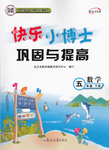题目内容
For most people, the word "fashion (时尚)" means "clothes". But people may ask the question, "What clothes are in fashion?" And they use the word "fashionable" in the same way:
"She was wearing a fashionable coat. His shirt was really a fashionable colour. "
But of course there are fashions in many things, not only in clothes. There are fashions in holidays, in restaurants, in films and books. There are even fashions in school subjects, jobs ... and in languages.
Fashions change as time goes. If you look at pictures of people or things from the past, you will see that fashions have always changed. An English house of 1750 was different from one of 1650. A fashionable man in 1780 looked very different from his grandson in 1860.
Today fashions change very quickly. Some of this is natural. We hear about things much more quickly than in the past. Newspapers, radios, telephones and television send information from one country to another in a few hours.
New fashions mean that people will buy new things, so you see there is money in fashion.
小题1:Most people think that "fashion" means __________.
小题2:By we can see that fashions change as time goes.
小题3:In the 5th paragraph the writer mentions kinds of ways to send information.
小题4:"There is money in fashion" means
小题5:The passage is mainly about .
"She was wearing a fashionable coat. His shirt was really a fashionable colour. "
But of course there are fashions in many things, not only in clothes. There are fashions in holidays, in restaurants, in films and books. There are even fashions in school subjects, jobs ... and in languages.
Fashions change as time goes. If you look at pictures of people or things from the past, you will see that fashions have always changed. An English house of 1750 was different from one of 1650. A fashionable man in 1780 looked very different from his grandson in 1860.
Today fashions change very quickly. Some of this is natural. We hear about things much more quickly than in the past. Newspapers, radios, telephones and television send information from one country to another in a few hours.
New fashions mean that people will buy new things, so you see there is money in fashion.
小题1:Most people think that "fashion" means __________.
| A.subjects | B.holidays | C.books | D.clothes |
| A.finding a job |
| B.looking at pictures |
| C.eating in a restaurant |
| D.wearing a fashionable coat |
| A.three | B.four | C.five | D.six |
| A.people like fashion and money |
| B.fashionable things are expensive |
| C.one can make money through fashion |
| D.a fashionable man makes much money |
| A.the changes of fashions |
| B.the kinds of colours |
| C.the money in fashion |
| D.the differences between houses |
小题1:D
小题2:B
小题3:B
小题4:C
小题5:A
短文属于说明文。讲述了时尚的表现,以及随着时间及科技发展时尚的发生的变化。
小题1:细节理解题。从短文第一段“For most people, the word "fashion" means "clothes".”可知。
小题2:综合理解题。从第三段“Fashions change as time goes. If you look at pictures…”可知。
小题3:细节理解题。从第五段最后一句“Newspapers, radios, telephones and television”可知,提到了四种。
小题4:推理判断题。根据最后一段“New fashions mean that people will buy new things”作者的观点是人们要花钱买新时尚,所以这里的意思是,通过新时尚可以挣钱。
小题5:主旨大意题。短文主要讲的是时尚的表现和时尚的变化,所以B、C、D三项与此关系不大,应排除。
小题1:细节理解题。从短文第一段“For most people, the word "fashion" means "clothes".”可知。
小题2:综合理解题。从第三段“Fashions change as time goes. If you look at pictures…”可知。
小题3:细节理解题。从第五段最后一句“Newspapers, radios, telephones and television”可知,提到了四种。
小题4:推理判断题。根据最后一段“New fashions mean that people will buy new things”作者的观点是人们要花钱买新时尚,所以这里的意思是,通过新时尚可以挣钱。
小题5:主旨大意题。短文主要讲的是时尚的表现和时尚的变化,所以B、C、D三项与此关系不大,应排除。

练习册系列答案
 快乐小博士巩固与提高系列答案
快乐小博士巩固与提高系列答案
相关题目